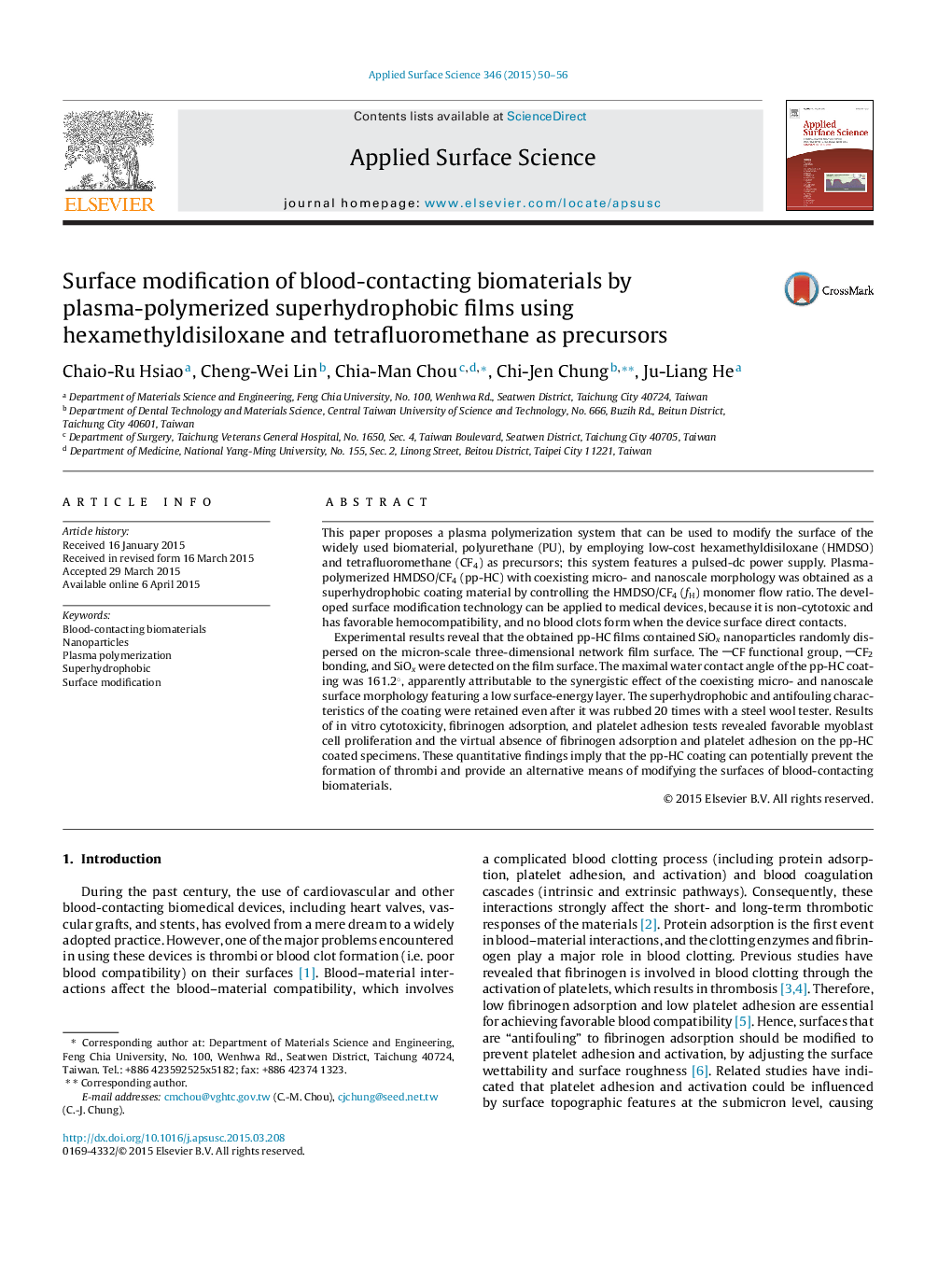| Article ID | Journal | Published Year | Pages | File Type |
|---|---|---|---|---|
| 5354804 | Applied Surface Science | 2015 | 7 Pages |
Abstract
Experimental results reveal that the obtained pp-HC films contained SiOx nanoparticles randomly dispersed on the micron-scale three-dimensional network film surface. The CF functional group, CF2 bonding, and SiOx were detected on the film surface. The maximal water contact angle of the pp-HC coating was 161.2°, apparently attributable to the synergistic effect of the coexisting micro- and nanoscale surface morphology featuring a low surface-energy layer. The superhydrophobic and antifouling characteristics of the coating were retained even after it was rubbed 20 times with a steel wool tester. Results of in vitro cytotoxicity, fibrinogen adsorption, and platelet adhesion tests revealed favorable myoblast cell proliferation and the virtual absence of fibrinogen adsorption and platelet adhesion on the pp-HC coated specimens. These quantitative findings imply that the pp-HC coating can potentially prevent the formation of thrombi and provide an alternative means of modifying the surfaces of blood-contacting biomaterials.
Related Topics
Physical Sciences and Engineering
Chemistry
Physical and Theoretical Chemistry
Authors
Chaio-Ru Hsiao, Cheng-Wei Lin, Chia-Man Chou, Chi-Jen Chung, Ju-Liang He,
